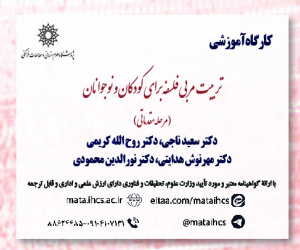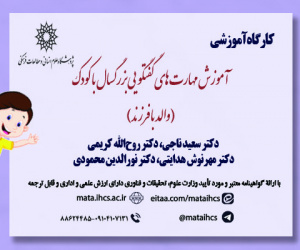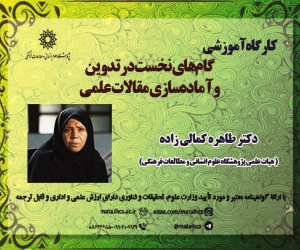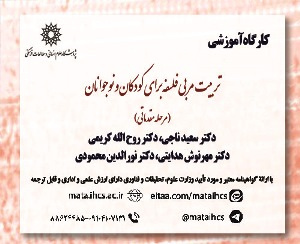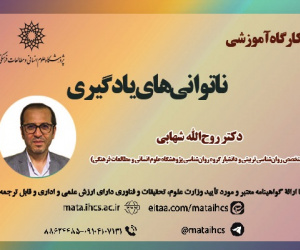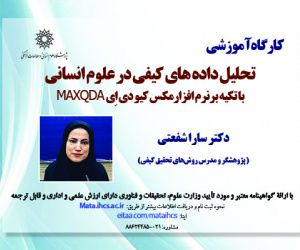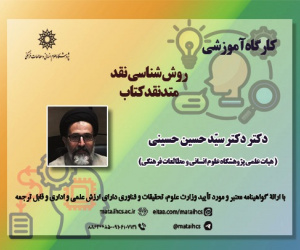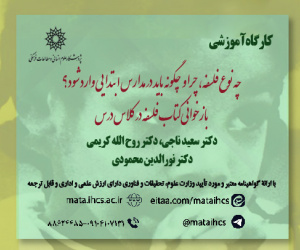شناسایی و تبیین شاخص ها و مولفه های حکمرانی اسلامی ( رهبری در نظام مردم سالاری دینی) مبتنی بر اندیشه ها و گفتمان رهبری انقلاب اسلامی
آرشیو
چکیده
هدف این پژوهش، شناسایی و تعیین شاخص ها و مؤلفه های حکمرانی ایرانی اسلامی (مردم سالاری دینی) براساس اندیشه ها و گفتمان امام خمینی) و امام خامنه ای(مدظله العالی) است که با بهره گیری از پژوهش کیفی و رویکرد تحلیل محتوا، و تحلیل مضمون بیانات و سخنرانی های ایشان که در صحیفه نور و سایت امام خامنه ای > موجود است، صورت گرفت. روند کدگذاری با استفاده از کدگذاریِ مجدد بررسی شد و پایایی بین کدگذاران 79 به دست آمد که پایایی مطلوبی است. برای بررسی روایی نیز از روش درگیری طولانی مدت و جست وجوگری بیشتر در سایر منابع موجود استفاده شد. بررسی و تحلیل داده ها حاکی از آن بود که شاخص های اصلی و مؤلفه های مردم سالاری دینی از دیدگاه امام خمینی) شامل عدالت در اقسام مختلف آن (اجتماعی، سیاسی، اقتصادی، قضایی)، مشارکت سیاسی برابر، حق انتخاب، حق نظارت، انتقاد، آزادی احزاب، امنیت سیاسی، دموکراسی اسلامی، حمایت از محرومان و مستضعفان، از بین بردن شکاف طبقاتی، نظارت و اظهارنظر، کارایی و اثربخشی نهادهای دولتی، ارتباط عاطفی بین مردم و دولت، حاکمیت بر قلوب مردم بدون تزلزل، فرهنگ مبارزه با فساد، قانون مداری الهی، آزادی منطقی و الهی، التزام به ولایت است. شاخص ها و مؤلفه های مردم سالاری دینی از دیدگاه مقام معظم رهبری(مدظله العالی) شامل شاخص اعتقادی و اخلاقی مدیران و مسئولان، ولایت مداری، حاکمیت اسلام، نقش مردم در حکومت، سعادت مادی و معنوی، خوداتکایی، بهره وری ساختارها و نهادهای حکومتی، پیشگامی و استفاده از ظرفیت ها و اجرای حدود الهی و استقرار عدالت در جامعه است.Identifying and explaining the indicators and components of Iranian-Islamic governance (religious democracy) based on the thoughts and discourse of the Imams of the Revolution.
The purpose of this research is to identify and determine the indicators and components of Iranian Islamic governance (religious democracy) based on the thoughts and discourses of Imam Khomeini (RA) and Imam Khamenei (Modazla Al-Ali). Using the qualitative research and content analysis approach, the content analysis of his statements and speeches, which are available in Sahifa Noor and Imam Khamenei's website, was done. The coding process was obtained using re-coding, and the reliability between the coders was 79, which is a good reliability. To check validity, the method of long-term engagement and further searching in other available sources was used. The study and analysis of the data indicated that the main indicators and components of religious democracy from the perspective of Imam Khomeini (RA) include social justice, public participation and supervision (political justice), equal political participation, the right to choose, the right to monitor criticism. , freedom of parties, political security, Islamic democracy, economic justice, support for the deprived and oppressed, eliminating the class gap, judicial justice, supervision and opinion, efficiency and effectiveness of government institutions, emotional connection between the people and the government, ruling over the hearts of the people Without wavering, the culture of fighting corruption, divine rule of law, rational and divine freedom, commitment to the province, as well as the indicators and components of religious democracy from the perspective of the Supreme Leader (Madh Zala Al-Ali), including: the belief and moral index of managers and officials, province Orientation, central justice, the rule of Islam, the role of the people in government, material and spiritual prosperity, self-reliance, the efficiency of government structures and institutions, pioneering and using capacities, and the implementation of divine limits and the establishment of justice in society.

